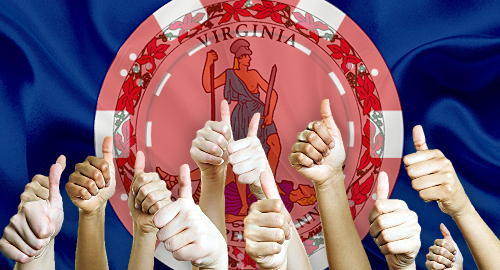 Virginia’s casino and sports betting proposals appear good to go after both chambers of the state legislature approved their governor’s last-minute amendments.
Virginia’s casino and sports betting proposals appear good to go after both chambers of the state legislature approved their governor’s last-minute amendments.
Wednesday saw both the Virginia Senate and the House of Delegates approve multiple amendments to the state’s casino and sports betting legislation, which authorizes mobile sports betting and the construction of up to five casinos, none of which is presently legal in the state.
The original legislation arrived on Gov. Ralph Northam’s desk last month, but Northam added several amendments to (a) hike gambling license fees, (b) ensure gambling tax revenue was allocated to education funding, and (c) include the state’s two NASCAR racetracks in the list of entities allowed to partner with bookmakers on a mobile sportsbook offering.
Casinos will pay 18% on their first $200m of annual gaming revenue, rising to 23% on revenue between $200m and $400m, topping out at 30% for revenue over $400m. Sports wagering revenue would be taxed at 15%.
Assuming Northam signs the revised legislation into law – and no one expects him not to – residents of the five cities eligible to host casinos will now be asked to vote yea or nay come this November’s election ballot. Three of these cities have already struck deals with casino operators, while the other two are reportedly still mulling their options.
Virginia is one of only a handful of US states yet to embrace casino gambling, although Virginia does have a state lottery, which is currently struggling to deal with the impact of the COVID-19 pandemic.
Local media quoted Virginia Lottery Board exec director Kevin Hall telling legislators this week that sales had been “significantly diminished due to the public health emergency and the related economic instability.”
March lottery sales were $176.4m, down 21% from the same month last year, while profits fell 28% to $48m. Hall said he expects April will suffer similar declines, and sales for the state’s fiscal year – which ends June 30 – are currently down 10%.